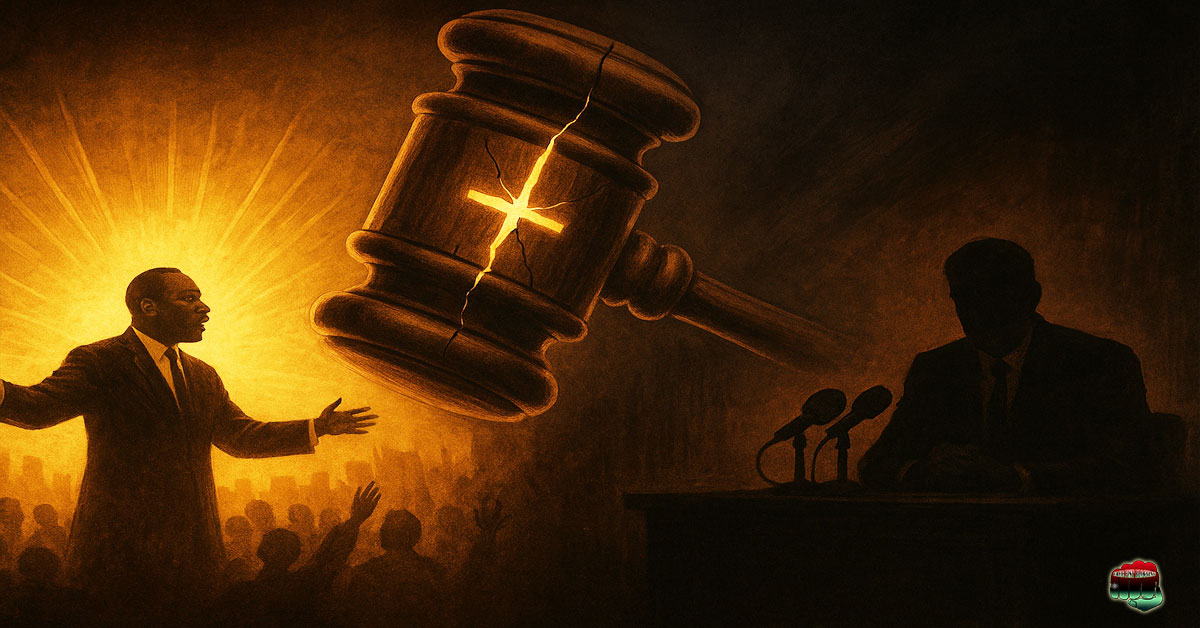When Pastor Jamal Bryant honored Martin Luther King Jr. and drew contrast with Charlie Kirk, preacher Millicent Sedra accused him of “ethnic idolatry.” But Scripture draws the line between witness and worship, and the gavel is not hers to wield.
By Kairos Reed · InnerKwest Sermonettes · October 10, 2025
Pastor Jamal Bryant lifted Martin Luther King Jr. as a prophetic voice and drew contrast with Charlie Kirk, a conservative commentator. In response, preacher Millicent Sedra accused Bryant of ‘ethnic idolatry.’ Not from a council of peers, not from a gathering of discernment, but from her own declaration, she leveled the charge. The question remains: Who gave her the gavel?
Scripture:
“Do not pronounce judgment before the time, before the Lord comes, who will bring to light the things now hidden in darkness and will disclose the purposes of the heart” (1 Corinthians 4:5).
Forensics of Sedra’s Claim:
Sedra’s accusation turns on a distortion. By calling Bryant’s honor of King “idolatry,” she confuses remembrance with reverence. The Bible warns against idols — false gods fashioned in our image (Exodus 20:3–4). But it also calls us to honor the cloud of witnesses who lived by faith (Hebrews 12:1).
- Her Point of View: She equates any racial or cultural acknowledgment with idolatry, collapsing prophetic testimony into ethnic pride.
- Her Error: She mistakes witness for worship, prophet for golden calf.
- Her Authority: She elevates herself as arbiter, able to denounce another pastor without the balance of shared accountability. That is not discernment — that is distortion.
Idolatry is indeed a danger. When culture, politics, or ethnicity sits on the throne, Christ is displaced. But honoring those who pointed to Christ — whether Moses, Deborah, or Martin — is not idolatry. It is testimony. It is remembrance that strengthens the race we must still run.
Martin Luther King Jr. never asked for worship. He asked for justice. He pointed toward Jesus in the wilderness of Jim Crow, with a dream anchored in Scripture’s vision of freedom. To call that idolatry is to confuse the prophet’s witness with the idol’s silence. It is to flatten the difference between a prophet who laid down his life and a pundit who fills airtime.
So no, Millicent Sedra, the verdict is not yours to give. The cross has already rendered judgment. The Kingdom does not silence its prophets by branding them as idols. The Kingdom remembers them so the church can walk in their steps.
Idolatry is when you enthrone race. Witness is when a life points back to the throne. And Martin’s life — like the lives of the faithful before him — pointed us back to Jesus, the author and finisher of our faith.
Support InnerKwest: Powering Truth & Excellence with Bitcoin
At InnerKwest.com, we are committed to delivering impactful journalism, deep insights, and fearless social commentary. Your Bitcoin contributions help us execute with excellence, ensuring we remain independent and continue to amplify voices that matter.
Support our mission—send BTC today!
🔗 Bitcoin Address: 3NM7AAdxxaJ7jUhZ2nyfgcheWkrquvCzRm© 2026 InnerKwest®. All Rights Reserved | Haki zote zimehifadhiwa | 版权所有.
InnerKwest® is a registered trademark of Inputit™ Platforms Inc. Global
No part of this publication may be reproduced, distributed, or transmitted in any form or by any means without prior written permission. Unauthorized use is strictly prohibited.
Thank you for standing with us in pursuit of truth and progress!![]()

